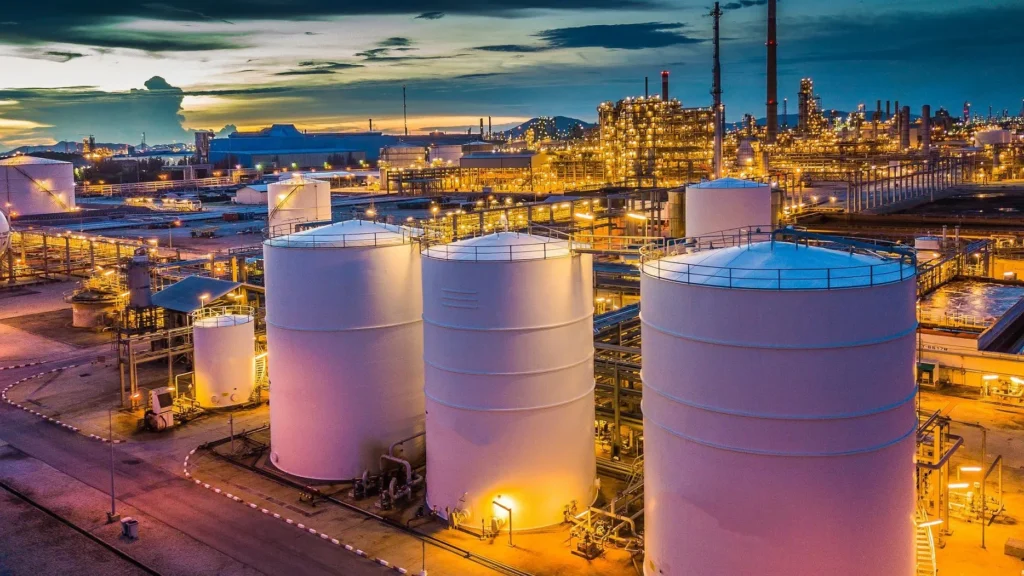Introduction
The oil and gas industry is one of the most significant contributors to global energy supply, but it also poses considerable environmental challenges. As concerns about climate change and environmental sustainability grow, the industry is shifting towards more sustainable practices to reduce its carbon footprint and ensure long-term viability. Companies are investing in cleaner technologies, improving operational efficiency, and embracing regulatory frameworks that promote environmental responsibility.
Understanding Sustainability in Oil & Gas
What is Sustainability in the Industry?
Sustainability in the oil and gas sector refers to adopting practices that minimize environmental impact while ensuring the industry’s economic and social responsibilities are met. This includes reducing greenhouse gas emissions, optimizing resource use, and integrating renewable energy solutions.
Key Areas of Sustainability
- Carbon Reduction Strategies – Implementing carbon capture and storage (CCS) and utilizing cleaner fuels.
- Energy Efficiency – Enhancing equipment and operational efficiency to lower energy consumption.
- Water Conservation – Reducing water usage and recycling wastewater in extraction processes.
- Renewable Integration – Investing in solar, wind, and hydrogen as supplementary energy sources.
- Regulatory Compliance – Following environmental regulations to ensure responsible operations.
The Importance of Sustainable Practices in Oil & Gas
Reducing Environmental Impact
One of the main objectives of sustainable practices is to reduce carbon emissions, air pollution, and water contamination. By adopting cleaner technologies and improving waste management, companies can minimize their ecological footprint.
Enhancing Operational Efficiency
Sustainable initiatives also drive efficiency, leading to cost savings and increased profitability. Advanced monitoring systems and automation help companies reduce waste and optimize fuel consumption.
Meeting Regulatory Requirements
Governments worldwide are imposing stricter environmental regulations on the oil and gas sector. Companies that proactively adopt sustainable measures are better positioned to comply with these regulations and avoid penalties.
Improving Industry Reputation
Public perception of the oil and gas industry has often been negative due to its environmental impact. By adopting sustainable practices, companies can enhance their reputation, gain public trust, and attract environmentally conscious investors.
Challenges in Implementing Sustainable Practices
High Initial Investment Costs
Adopting sustainable technologies often requires significant capital investment. Many companies hesitate to transition due to the high costs associated with renewable energy projects and carbon reduction initiatives.
Technological Limitations
While advances in sustainable energy are promising, some technologies are still in the developmental phase. Achieving full-scale implementation in oil and gas operations can be complex and time-consuming.
Resistance to Change
The industry has traditionally relied on fossil fuels, and shifting toward sustainable practices requires a cultural and operational shift. Resistance from stakeholders can slow down the adoption of green initiatives.
The Future of Sustainability in Oil & Gas
Digital Transformation and Automation
The use of artificial intelligence (AI), blockchain, and data analytics is enhancing sustainability by optimizing resource allocation and predicting equipment maintenance needs. These technologies help reduce waste and improve operational efficiency.
Expansion of Carbon Capture and Storage (CCS)
Carbon capture technology is becoming a critical tool in reducing CO₂ emissions. By investing in CCS, companies can significantly lower their environmental impact while continuing to meet global energy demands.
Increased Focus on Renewable Energy
Many oil and gas companies are diversifying into renewable energy sources, such as solar, wind, and biofuels. This shift not only helps reduce dependence on fossil fuels but also aligns with global sustainability goals.
Circular Economy Initiatives
The circular economy model encourages the reuse and recycling of resources, minimizing waste generation. Companies are increasingly adopting this approach to improve sustainability while maintaining profitability.
Conclusion
The oil and gas industry is undergoing a transformation toward greater sustainability. Companies that invest in clean technologies, improve efficiency, and comply with environmental regulations will be better positioned for long-term success. While challenges such as high costs and technological limitations remain, ongoing innovations and regulatory support are driving the industry towards a more sustainable future. As the global demand for energy continues, sustainability will play a crucial role in shaping the future of oil and gas.

